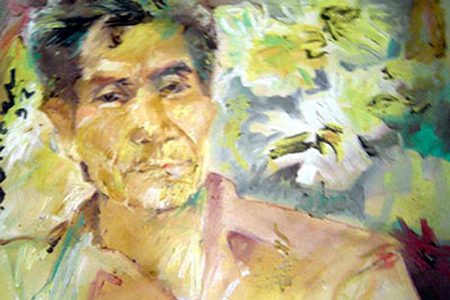Tao Mat (the stage name of Nguyen Dang Thuc) was born into a poor peasant family in Thach That District, Ha Tay Province, and forty-five kilometers from Hanoi. After the 1945 August Revolution, he joined the army and took part in the resistance. At that time, he never thought he would become a professional writer. In 1957, Tao Mat watched a traditional cheo play, Thi Kinh, the Goddess of Mercy and immediately fell in love with this theatrical art form. He later followed the Hanoi Cheo Company to watch its rehearsals and performances and started learning cheo songs and dances. After a short time of practice, Tao Mat mastered a number of Cheo airs and was determined to pursue the Cheo stage.

Quite separately, he studied Chinese and Nom characters by himself and became accomplished in history, philosophy, and other arts. From the 1960s on he was an avant-garde scriptwriter who drew stories from modern life to create, cheo plays that were lauded at national stage festivals. His play A Song to Preserve the Nation (Bai ca giu nuoc) in three volumes about the Ly Dynasty (eleventh to thirteenth centuries) produced an audience stir during the 1980s because of its modern social views. The play criticizes conservative forces impeding social reforms and supports women holding power. The character He Gia (Old Buffoon) impressed the audience with his optimism and patience before his death. After Tao Mat died in 1993, Bai ca giu nuoc received a gold medal at a festival held in the ancient capital of Hoa Lu (Ninh Binh Province). The Government awarded Tao Mat the Ho Chi Minh Prize in Literature and Arts for his achievements and contributions to cheo.



